Audi e-tron GT vs BMW iX - Differences and prices compared
Compare performance (843 HP vs 659 HP), boot space and price (93300 £ vs 71600 £) at a glance. Find out which car is the better choice for you – Audi e-tron GT or BMW iX?
Costs and Efficiency:
When it comes to price and running costs, the biggest differences usually appear. This is often where you see which car fits your budget better in the long run.
BMW iX has a evident advantage in terms of price – it starts at 71600 £, while the Audi e-tron GT costs 93300 £. That’s a price difference of around 21771 £.
In terms of energy consumption, the advantage goes to the BMW iX: with 17.80 kWh per 100 km, it’s barely noticeable more efficient than the Audi e-tron GT with 17.90 kWh. That’s a difference of about 0.10000 kWh.
As for range, the BMW iX performs to a small extent better – achieving up to 701 km, about 84 km more than the Audi e-tron GT.
Engine and Performance:
Under the bonnet, it becomes clear which model is tuned for sportiness and which one takes the lead when you hit the accelerator.
When it comes to engine power, the Audi e-tron GT has a evident edge – offering 843 HP compared to 659 HP. That’s roughly 184 HP more horsepower.
In acceleration from 0 to 100 km/h, the Audi e-tron GT is evident quicker – completing the sprint in 2.90 s, while the BMW iX takes 3.80 s. That’s about 0.90 s faster.
There’s no difference in top speed – both reach 250 km/h.
There’s also a difference in torque: Audi e-tron GT pulls barely noticeable stronger with 1027 Nm compared to 1015 Nm. That’s about 12 Nm difference.
Space and Everyday Use:
Beyond pure performance, interior space and usability matter most in daily life. This is where you see which car is more practical and versatile.
Seats: BMW iX offers a bit more seating capacity – 5 vs 4.
In curb weight, Audi e-tron GT is barely noticeable lighter – 2355 kg compared to 2525 kg. The difference is around 170 kg.
In terms of boot space, the BMW iX offers to a small extent more room – 500 L compared to 405 L. That’s a difference of about 95 L.
When it comes to payload, BMW iX a bit takes the win – 575 kg compared to 485 kg. That’s a difference of about 90 kg.
Who comes out on top?
Overall, the BMW iX shows itself to be has the upper hand and secures the title of DriveDuel Champion.
It convinces with the more balanced overall package and proves to be the more versatile choice for everyday use.
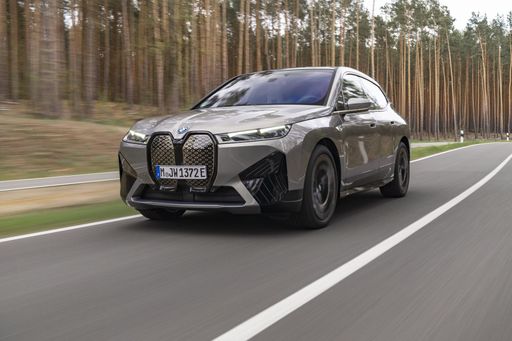
BMW iX
Costs and Consumption
View detailed analysis
Engine and Performance
View detailed analysis
Dimensions and Body
View detailed analysis
Audi e-tron GT
The Audi e-tron GT is a striking electric grand tourer that blends dramatic, low-slung styling with the hushed refinement of a luxury saloon. Behind the beautiful skin you'll find a driver-focused cabin and brisk, silent performance that makes daily commutes feel like auditioning for a weekend road trip — and yes, it manages to be both serious and a little bit smug about it.
details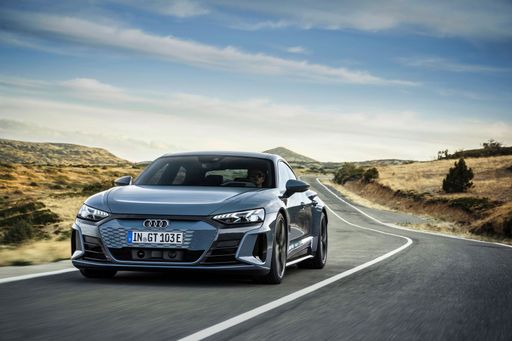
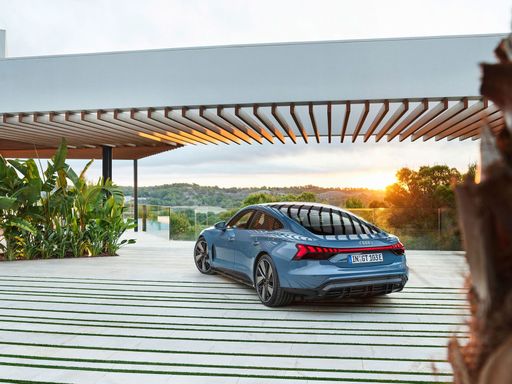
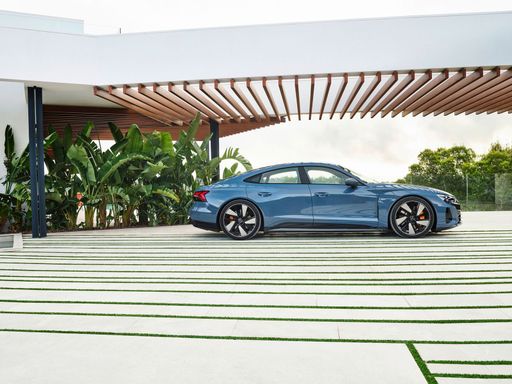
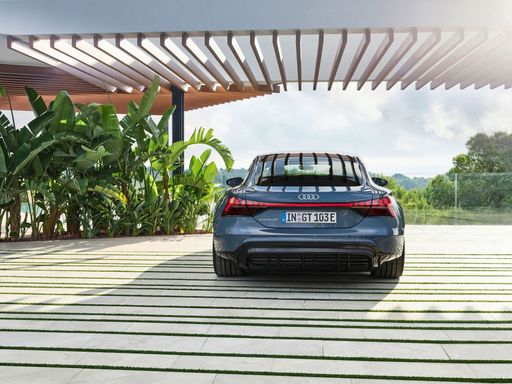
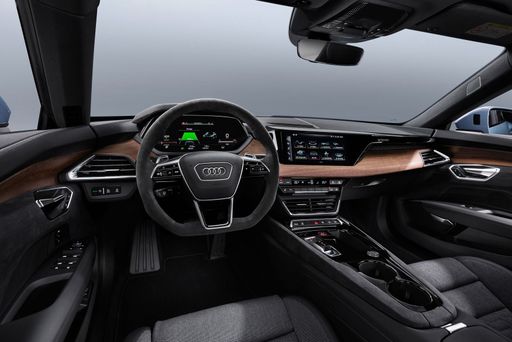
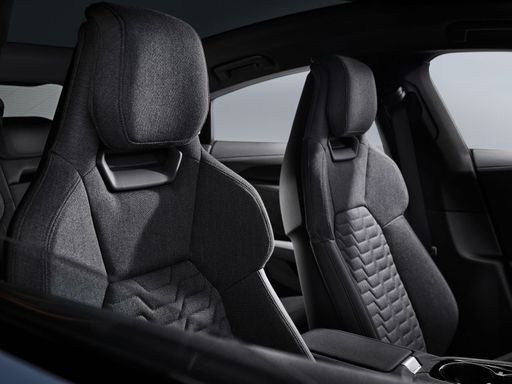
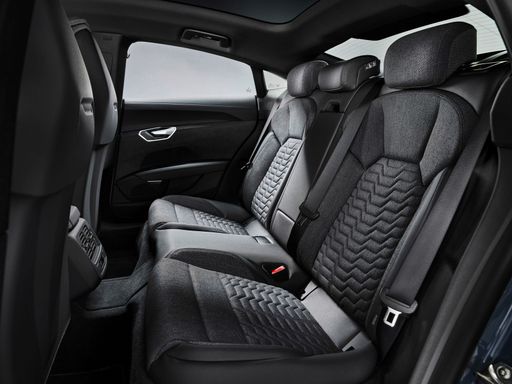
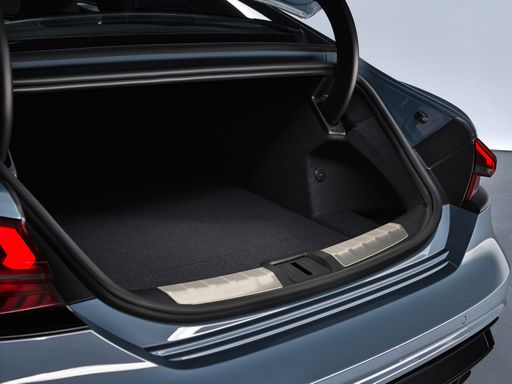
BMW iX
The BMW iX arrives like a tech-rich luxury SUV that refuses to shout, offering a serene yet authoritative road presence that suits both city commutes and long-distance cruising. Inside, its minimalist cabin wraps high-quality materials and clever interfaces around a driver-focused layout, making it feel more like a forward-thinking lounge than just another electric appliance — and yes, it still delivers the dynamic driving character you'd expect from a BMW.
details
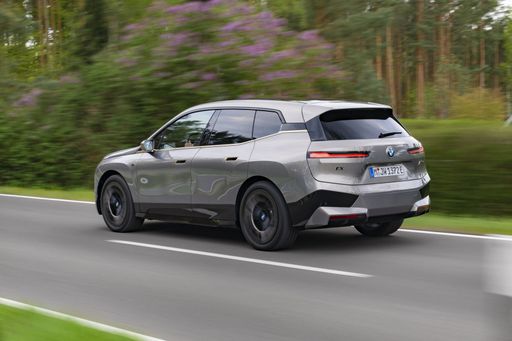
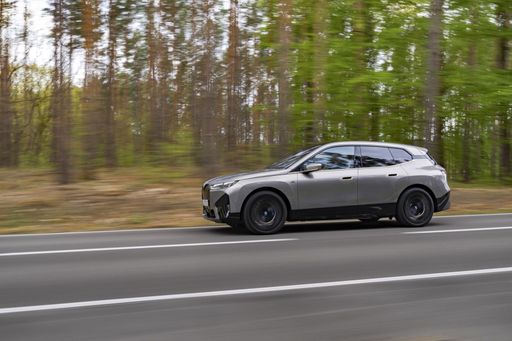
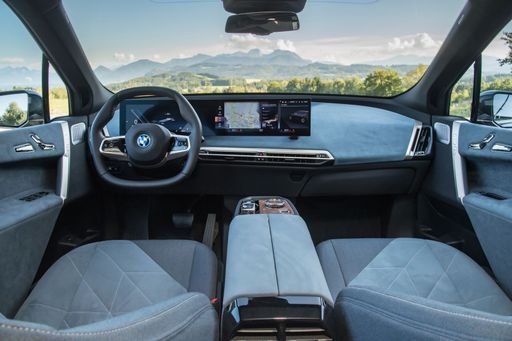
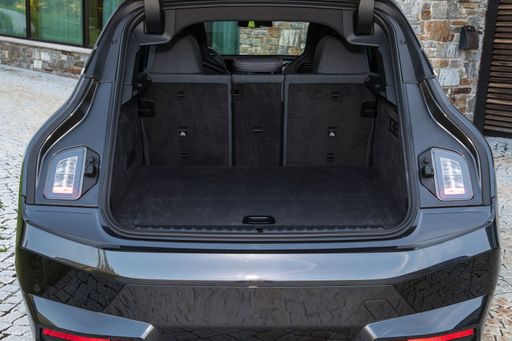
Costs and Consumption |
|
|---|---|
|
Price
93300 - 137600 £
|
Price
71600 - 107100 £
|
|
Consumption L/100km
-
|
Consumption L/100km
-
|
|
Consumption kWh/100km
17.9 - 19 kWh
|
Consumption kWh/100km
17.8 - 20.6 kWh
|
|
Electric Range
582 - 617 km
|
Electric Range
600 - 701 km
|
|
Battery Capacity
97 kWh
|
Battery Capacity
96 - 109.6 kWh
|
|
co2
0 g/km
|
co2
0 g/km
|
|
Fuel tank capacity
-
|
Fuel tank capacity
-
|
Dimensions and Body |
|
|---|---|
|
Body Type
Coupe
|
Body Type
SUV
|
|
Seats
4
|
Seats
5
|
|
Doors
4
|
Doors
5
|
|
Curb weight
2355 - 2395 kg
|
Curb weight
2525 - 2655 kg
|
|
Trunk capacity
350 - 405 L
|
Trunk capacity
500 L
|
|
Length
4997 - 5004 mm
|
Length
4965 mm
|
|
Width
1964 mm
|
Width
1970 mm
|
|
Height
1379 - 1394 mm
|
Height
1688 - 1695 mm
|
|
Max trunk capacity
-
|
Max trunk capacity
1750 L
|
|
Payload
455 - 485 kg
|
Payload
505 - 575 kg
|
Engine and Performance |
|
|---|---|
|
Engine Type
Electric
|
Engine Type
Electric
|
|
Transmission
Automatic
|
Transmission
Automatic
|
|
Transmission Detail
Reduction Gearbox
|
Transmission Detail
Reduction Gearbox
|
|
Drive Type
All-Wheel Drive
|
Drive Type
All-Wheel Drive
|
|
Power HP
503 - 843 HP
|
Power HP
408 - 659 HP
|
|
Acceleration 0-100km/h
2.9 - 4.2 s
|
Acceleration 0-100km/h
3.8 - 5.1 s
|
|
Max Speed
245 - 250 km/h
|
Max Speed
200 - 250 km/h
|
|
Torque
625 - 1027 Nm
|
Torque
700 - 1015 Nm
|
|
Number of Cylinders
-
|
Number of Cylinders
-
|
|
Power kW
370 - 620 kW
|
Power kW
300 - 485 kW
|
|
Engine capacity
-
|
Engine capacity
-
|
General |
|
|---|---|
|
Model Year
2024 - 2025
|
Model Year
2025
|
|
CO2 Efficiency Class
A
|
CO2 Efficiency Class
A
|
|
Brand
Audi
|
Brand
BMW
|
Is the Audi e-tron GT offered with different drivetrains?
Available configurations include All-Wheel Drive.
The prices and data displayed are estimates based on German list prices and may vary by country. This information is not legally binding.




